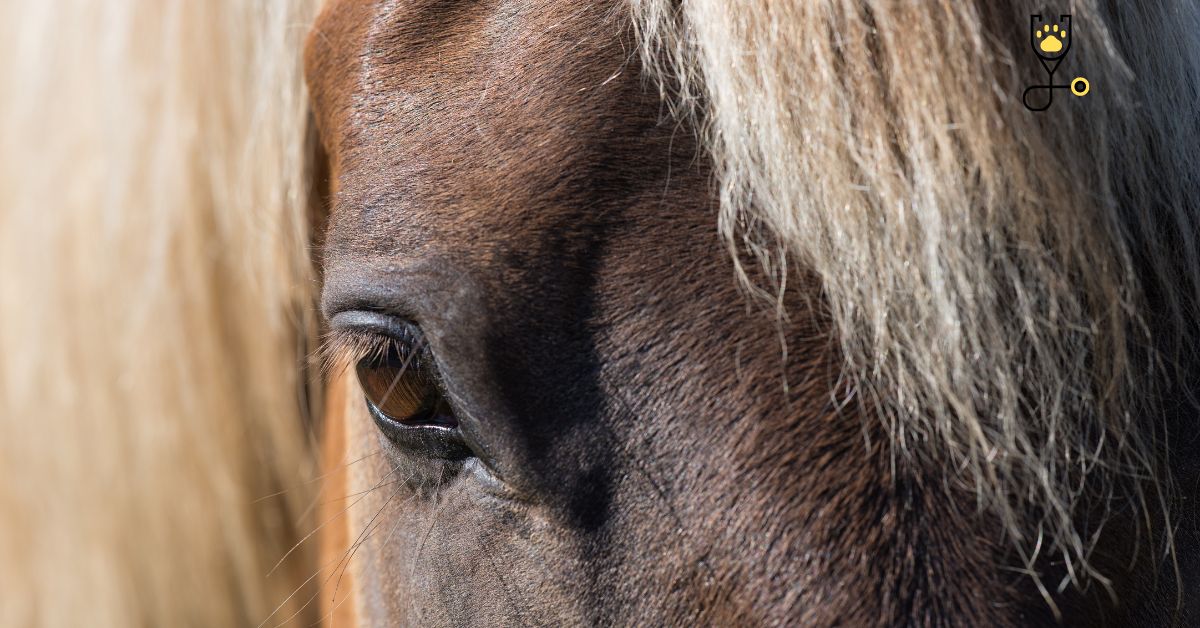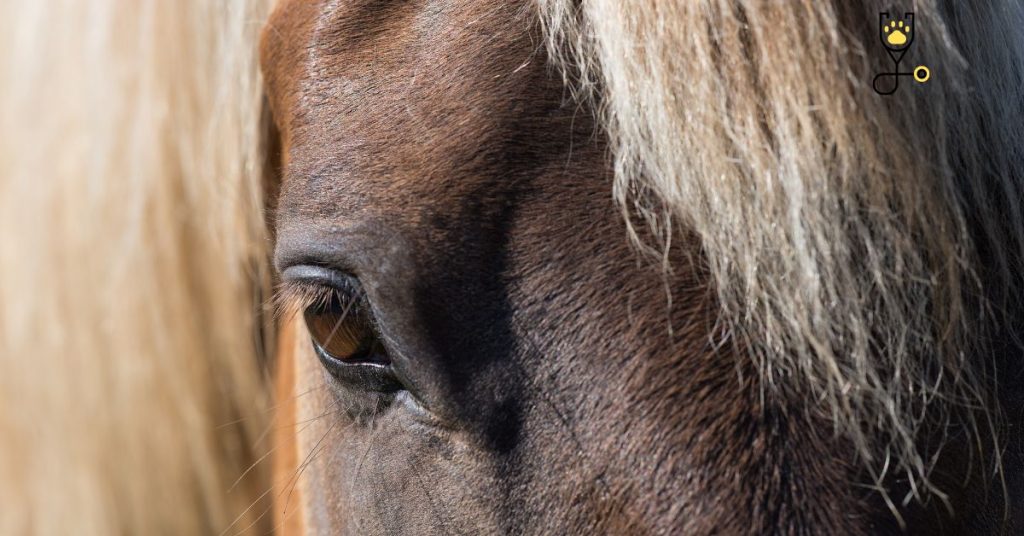Do you have a horse that seems to have difficulty seeing at night? If so, he may be suffering from moon blindness. Moon blindness is a common problem in horses and can be caused by a variety of factors. In this blog post, we’ll discuss the symptoms, causes, treatment, and prevention of moon blindness in horses. We’ll also provide tips for keeping your horse safe during the night. So, keep reading to learn more about this serious condition!
What Is Moon Blindness?
Moon blindness, also called recurrent uveitis, is a condition that causes inflammation in the eye. This inflammation can lead to pain, light sensitivity, and eventually, blindness. Moon blindness is a serious condition that can be debilitating for horses. However, with proper treatment, many horses are able to live long and happy lives.
What Are the Symptoms of Moon Blindness?
The most common symptom of moon blindness is difficulty seeing at night. This is because the inflammation caused by the condition can make the pupil of the eye smaller, which decreases the amount of light that enters the eye. Other symptoms of moon blindness include:
– Eye discharge: Horses with moon blindness may have a watery or thick discharge from their eyes.

– Eye pain: Moon blindness can cause horses to have pain in their eyes. This pain may be worse at night or when the horse is exposed to bright light.
– Inflammation: The inflammation caused by moon blindness can make the eye appear red and swollen.
– Light sensitivity: Horses with moon blindness may be sensitive to light, and they may squint or keep their eyes closed in bright light.
– Vision problems: Moon blindness can cause horses to have blurred or decreased vision. In severe cases, the condition can lead to blindness.
If you notice any of these symptoms in your horse, it’s important to contact your veterinarian right away. Moon blindness is a serious condition that can cause permanent damage to the eye if it’s not treated promptly.
What Causes Moon Blindness?
Moon blindness is caused by inflammation in the eye. This inflammation can be caused by a variety of factors, including infection, injury, and allergies. In some cases, the exact cause of the inflammation is unknown. However, there are several risk factors for moon blindness, including:
1. Age: Moon blindness is more common in older horses.
2. Breed: Some breeds of horses are more susceptible to moon blindness than others. These breeds include Arabians, Appaloosas, and Morgans.
3. Environment: Horses that live in dusty or sandy environments are at a higher risk for developing moon blindness.
4. History of eye problems: Horses that have had previous eye problems are more likely to develop moon blindness.
5. Season: Moon blindness is more common in the spring and summer months when there is more pollen in the air.
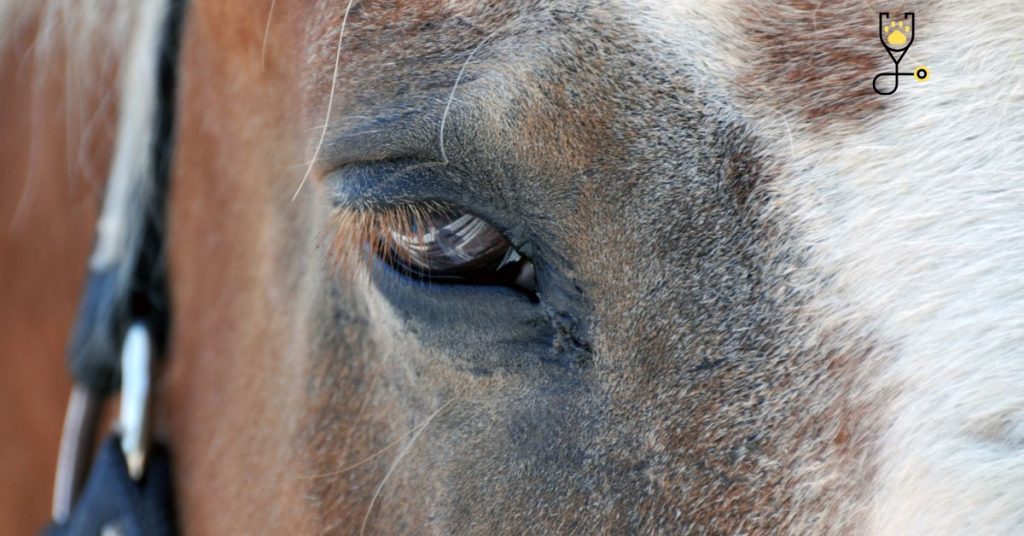
What Are the Treatment Options for Moon Blindness?
There is no cure for moon blindness, but the condition can be managed with treatment. Treatment options for moon blindness include:
1. Anti-inflammatory drugs: Nonsteroidal anti-inflammatory drugs (NSAIDs) can help to reduce the inflammation caused by moon blindness.
2. Corticosteroids: Corticosteroids are powerful anti-inflammatory drugs that can be used to treat moon blindness.
3. Antibiotics: If an infection is causing inflammation, antibiotics may be prescribed.
4. Surgery: In some cases, surgery may be necessary to remove the damaged tissue from the eye.
5. Eye drop: A special eye drop called atropine may be used to dilate the pupil and relieve pain.
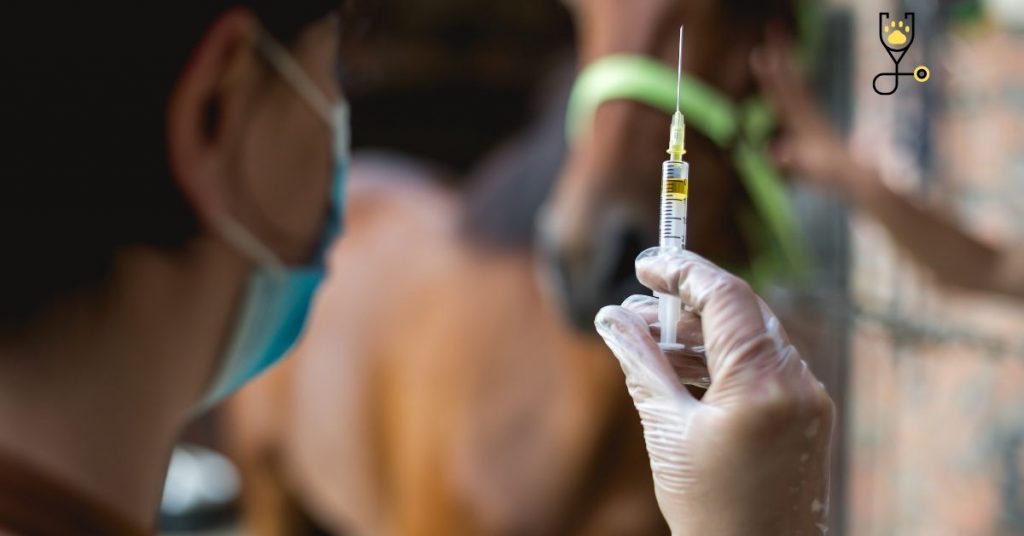
What Can I Do to Prevent Moon Blindness?
There are several things you can do to help prevent moon blindness in your horse, including:
1. Keep your horse’s eyes clean: Regularly cleaning your horse’s eyes can help to remove any irritants that could cause inflammation.
2. Avoid dusty environments: If possible, try to avoid riding or working your horse in dusty or sandy environments.
3. Check for allergies: If your horse is allergic to pollen or other allergens, taking steps to avoid exposure can help to prevent moon blindness.
4. Manage other health conditions: If your horse has any other health conditions that could contribute to inflammation, such as arthritis, it’s important to manage these conditions effectively.
5. Vaccinate your horse: Some vaccinations, such as the tetanus vaccine, can help to prevent moon blindness.
By following these tips, you can help to prevent moon blindness in your horse. If you think your horse may have moon blindness, it’s important to contact your veterinarian right away so that treatment can be started as soon as possible.
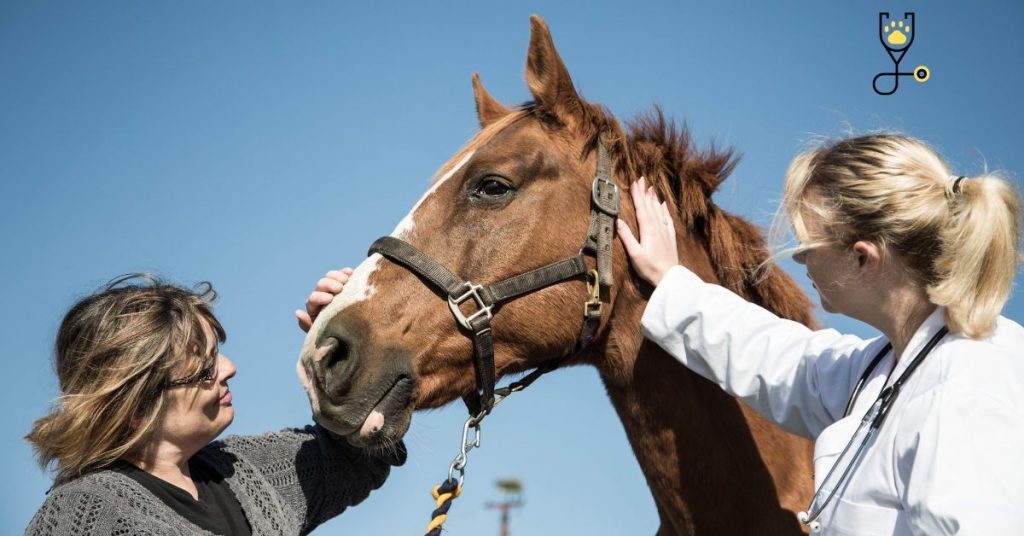
How To Diagnose Moon Blindness?
There is no one test that can diagnose moon blindness. Instead, your veterinarian will likely perform a combination of tests to reach a diagnosis. These tests may include:
1. Physical examination: Your veterinarian will perform a physical examination of your horse’s eyes and overall health.
2. Ophthalmic examination: This test will allow your veterinarian to get a closer look at your horse’s eyes. During this test, special instruments will be used to examine the eye.
3. Blood tests: Blood tests can help to rule out other conditions that could cause similar symptoms.
4. CT scan or MRI: In some cases, a CT scan or MRI may be necessary to get a detailed view of the eye.
5. Biopsy: In some cases, a biopsy may be necessary to confirm the diagnosis.
After all of the tests have been performed, your veterinarian will be able to give you a definitive diagnosis. If your horse is diagnosed with moon blindness, treatment can be started right away.
What Is The Prognosis For Moon Blindness?
The prognosis for moon blindness varies depending on the severity of the condition. In some cases, moon blindness can lead to permanent vision loss. However, with early diagnosis and treatment, many horses are able to maintain their vision.
Conclusion
Moon blindness is a condition that can cause inflammation and vision loss in horses. There is no cure for moon blindness, but the condition can be managed with treatment. If you think your horse may have moon blindness, it’s important to contact your veterinarian right away so that treatment can be started as soon as possible.
Frequently Asked Questions
1. What is moon blindness?
Moon blindness is a condition that can cause inflammation and vision loss in horses. There is no cure for moon blindness, but the condition can be managed with treatment.
2. What are the symptoms of moon blindness?
The symptoms of moon blindness include inflammation, pain, and vision loss.
3. What Causes Moon Blindness?
The exact cause of moon blindness is unknown, but the condition is thought to be caused by a combination of genetic and environmental factors.
4. How is moon blindness diagnosed?
There is no one test that can diagnose moon blindness. Instead, your veterinarian will likely perform a combination of tests to reach a diagnosis. These tests may include a physical examination, an ophthalmic examination, blood tests, and imaging tests.
5. What is the treatment for moon blindness?
There is no cure for moon blindness, but the condition can be managed with treatment. Treatment options include anti-inflammatory medications, immunosuppressive drugs, and surgery.
6. What is the prognosis for moon blindness?
The prognosis for moon blindness varies depending on the severity of the condition. In some cases, moon blindness can lead to permanent vision loss. However, with early diagnosis and treatment, many horses are able to maintain their vision.
7. How can I prevent moon blindness?
There is no known prevention for moon blindness, but the condition can be managed with treatment. If you think your horse may have moon blindness, it’s important to contact your veterinarian right away so that treatment can be started as soon as possible.
